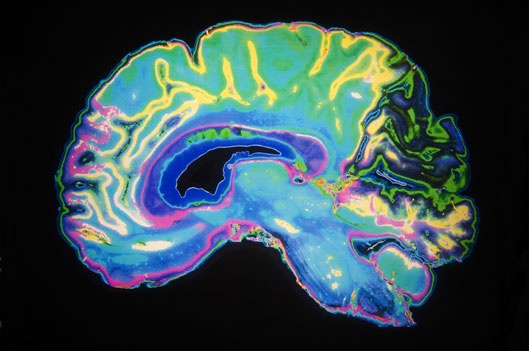Experts discuss what beloved actor showed us about disease
By Kevin McKeough
Gene Wilder’s death on Aug. 29 at age 83 from complications of Alzheimer’s disease prompted tributes across generations of fans of the beloved comic actor. It also focused additional public attention on Alzheimer’s, a progressive neurological disease that is the leading cause of dementia.
“These public figures who had Alzheimer’s make it real to people, be it Gene Wilder, be it Charlton Heston, be it Ronald Reagan,” says David Bennett, MD, the director of the Rush Alzheimer’s Disease Center and the Robert C. Borwell professor of neurological sciences.
While Wilder didn’t publicly disclose his disease, a statement his family released upon the actor’s death illustrates the complexity of Alzheimer’s and its effects. Here, Bennett and other experts at Rush discuss what’s known about Wilder’s illness, and what it can tell us about the disease.
Alzheimer’s is a common contributor to death and direct cause of it
His family’s statement said that Wilder died of complications of Alzheimer’s disease, a reminder that many people with the illness succumb to related conditions rather than Alzheimer’s itself. While the family didn’t disclose the specific complications, the most common are pneumonia and falls, according to Raj Shah, MD, a researcher with the Rush Alzheimer’s Disease Center and an associate professor in the Rush Department of Family Medicine.
“They may be listed as the causes on a death certificate, but the person wouldn’t have had that fall or pneumonia without Alzheimer’s,” Shah says.
Bennett adds that Alzheimer’s can disrupt the autonomic nervous system, which controls unconscious body functions such as heartbeat and digestion, leading to autonomic failure. He also notes that many patients with the disease in nursing homes develop urinary tract infections or stop eating.
“It’s contributing in all kinds of complex ways, some of them social and some of them biological,” he says.
Alzheimer’s-related deaths may be under-reported
The U.S. Centers for Disease Control and Prevention reported Alzheimer’s as the cause of about 90,000 deaths in 2014, making it the sixth greatest cause of death (heart disease and cancer hold a firm grip on the top two spots). However, when analyzed using methods that do not rely on death certificate reporting, the number actually may be about 500,000, according to a research study authored by Bryan James, PhD, an epidemiologist with the Rush Alzheimer’s Disease Center and assistant professor in Rush’s Department of Internal Medicine.
James commends Wilder’s family for acknowledging that the actor’s death was due to complications of Alzheimer’s and helping raise awareness of the disease. “Due to misconceptions and stigma, Alzheimer’s disease is often not reported as a cause of death,” he says.
People usually develop Alzheimer’s long before it’s diagnosed
According to his family’s statement, Wilder remained able to recognize loved ones, a capacity many people with the disease lose. The statement also indicated that after his diagnosis he was a ring-bearer at a family wedding where he danced down the aisle, and that he hosted numerous Western movie marathons.
Given the level of activity and lucidity the statement describes, “it doesn’t sound like he was in end-stage Alzheimer’s,” Bennett says.
In fact, Wilder’s Alzheimer’s may have been diagnosed much earlier than usual. “By the time people actually get diagnosed with dementia, they’re usually further along in the process,” Shah says. “On average, in the United States people get diagnosed when they’re in the moderate stage of the disease, when it’s pretty clear to the family and the clinician that things aren’t right.”
The disease goes undiagnosed in part because families and friends regard some degree of memory and reasoning difficulties in older people as normal. “Eventually, something ends up pushing the family over the edge and making them say, ‘wait a minute, this is not just a person getting older,’ and that can lead to a clinical evaluation,” Bennett says.
The doctors say that people usually begin showing signs — such as misplacing items, having difficulty keeping track of events, or repeating questions — five to 10 years before they’re diagnosed. The changes in the brain caused by the disease may begin occurring decades before symptoms even appear.
“Those changes start happening for most of us in the midlife period,” Shah says, “Our brains are so resilient that it protects itself, and it takes a long time before Alzheimer’s becomes symptomatic.”
Life goes on after an Alzheimer’s diagnosis for both patients and families
The progression of Alzheimer’s disease is unique in every patient, but overall is characterized by progress decline in cognition and function. Still, as Wilder’s story shows, patients and family members have opportunities for meaningful, positive experiences after an Alzheimer’s diagnosis.
“They will have good days, and they will have bad days, and we encourage people to enjoy the good days when they happen and really appreciate them,” Shah says.
“You focus on the abilities they have, even when you know they’re going to lose them over time,” he continues. “There’s a legacy for the family, and they can talk about what that person enjoyed in the last years of his or her life.”

